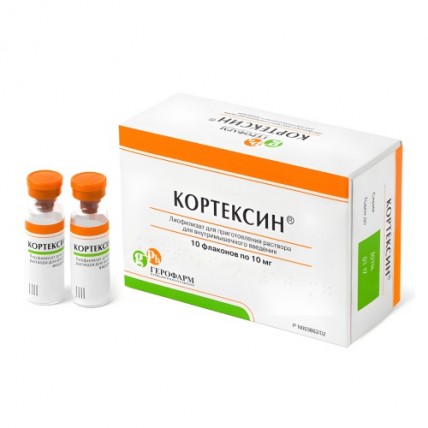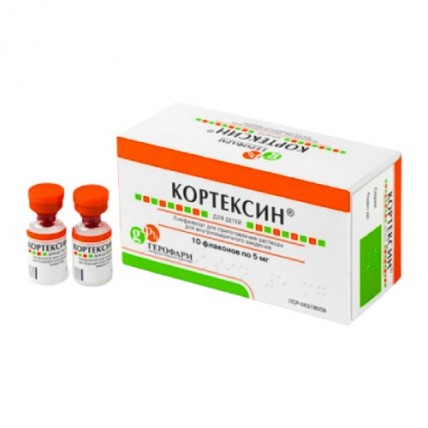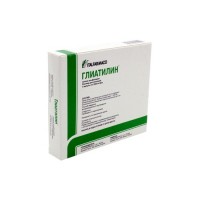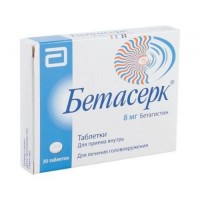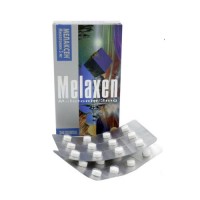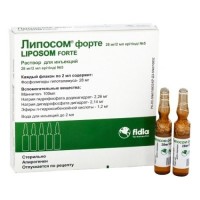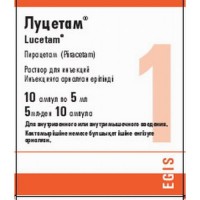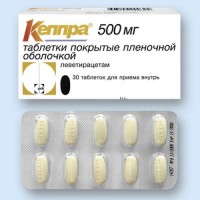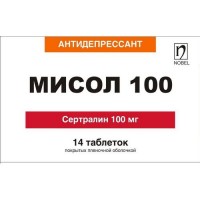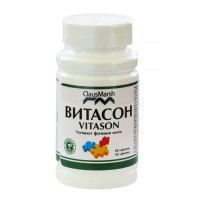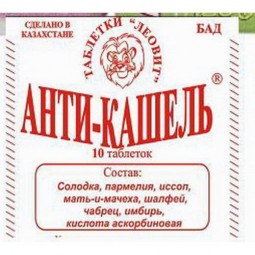Cortexin® 10 mg/5 mg
- $43.00
What is Cortexin?
Cortexin is a multicomponent neuroprotective drug derived from the cerebral cortex of animals, primarily cattle and pigs.
It contains a balanced combination of short peptides, amino acids, and essential trace elements that can cross the blood-brain barrier.
Cortexin acts by targeting specific molecular and cellular processes in the brain, helping to correct neurological damage at various stages of disease.
Its mechanism of action involves protecting neurons from oxidative stress, preventing apoptosis (programmed cell death), and promoting the formation of new neural connections, which aids in the recovery of cognitive functions and overall brain activity.
How Does Cortexin Work?
Cortexin® works by delivering a complex of low-molecular-weight, water-soluble polypeptides through the blood-brain barrier to the neurons.
This action enhances brain functions such as learning, memory, and concentration while providing protection to neurons against various neurotoxic factors.
It also reduces the toxic effects of psychotropic substances, inhibits lipid peroxidation in neurons, and boosts neuron survival under oxidative stress and hypoxia.
What Are the Benefits of Cortexin?
Cortexin® offers several therapeutic benefits:
- Nootropic Effects: Improves cognitive functions, learning processes, and memory.
- Neuroprotective Effects: Shields neurons from damage caused by endogenous neurotoxic factors like glutamate and free radicals.
- Antioxidant Effects: Inhibits lipid peroxidation in neurons and enhances their survival during oxidative stress.
- Tissue-Specific Effects: Activates the metabolism of neurons in the central and peripheral nervous systems, aiding in repair processes and overall brain function.
How Does Cortexin Help Children with ADHD?
Cortexin® has demonstrated significant effectiveness in children with Attention Deficit Hyperactivity Disorder (ADHD). The peptide-based bioregulator improves metabolic processes in the brain and selectively acts on brain cells. Clinical improvements observed in children with ADHD include:
- Increased attentiveness and reduced distractions during school activities.
- Faster completion of tasks and improved academic performance.
- Enhanced fine motor skills and neuropsychological test results.
Children with speech impairments also benefit greatly from Cortexin®.
They show a greater willingness to use speech for communication, repeat after adults, and exhibit an expanded active vocabulary.
Improvements in understanding spoken language and reducing grammatical errors are noted as well.
Parents report decreased asthenic symptoms, such as improved emotional attention and perseverance.
What is the Mechanism of Action of Cortexin?
The mechanism of action of Cortexin® involves:
- Activation of neuronal peptides and brain neurotrophic factors.
- Optimization of the balance of excitatory and inhibitory amino acids, dopamine, and serotonin.
- GABAergic effects.
- Reduction of paroxysmal seizure activity in the brain.
- Improvement of bioelectrical activity of the brain.
- Prevention of free radical formation (products of lipid peroxidation).
What is the Composition of Cortexin?
Cortexin® is available in two formulations, one for adults and one for children:
Adult Formulation:
- Active Ingredient: Cortexin 10 mg (a complex of water-soluble polypeptide fractions).
- Excipient: Glycine 12 mg (stabilizer).
Pediatric Formulation:
- Active Ingredient: Cortexin 5 mg (a complex of water-soluble polypeptide fractions).
- Excipient: Glycine 6 mg (stabilizer).
Amino Acid Composition (nmol/10 mg)
L-Amino Acids
- Aspartic Acid: 446
- Threonine: 212
- Serine: 268
- Glutamic Acid: 581
- Proline: 187
- Glycine: 298
- Alanine: 346
- Valine: 240
- Methionine: 0
- Isoleucine: 356
- Tyrosine: 109
- Phenylalanine: 162
- Histidine: 116
- Lysine: 253
- Arginine and Other Amino Acids: 202
Vitamin Composition (mcg/10 mg)
- Thiamine (B1): 0.08
- Riboflavin (B2): 0.03
- Niacin (PP): 0.05
- Retinol (A): 0.011
- Alpha-Tocopherol (E): 0.007
Mineral Composition (mcg/10 mg)
- Copper: 0.2129
- Iron: 2.26
- Calcium: 22.93
- Magnesium: 8.5
- Potassium: 19.83
- Sodium: 643.2
- Sulfur: 152.65
- Phosphorus: 91.95
- Zinc: 4.73
- Molybdenum: 0.0203
- Cobalt: 0.0044
- Manganese: 0.0061
- Selenium: 0.0745
- Aluminum: 0.3104
- Lithium: 0.0340
How is Cortexin Administered?
Cortexin® is administered intramuscularly.
The lyophilized powder in the vial should be dissolved in 1-2 ml of 0.5% procaine (novocaine), water for injection, or 0.9% sodium chloride solution.
The injection should be given daily as follows:
- Adults: 10 mg daily for 10 days.
- Children: For body weight up to 20 kg, 0.5 mg/kg; for body weight over 20 kg, 10 mg daily for 10 days.
A repeat course can be administered after 3-6 months if necessary.
For children with ADHD, the same dosage regimen is recommended, either as monotherapy or in combination with other symptomatic and pathogenetic treatments for central nervous system disorders.
How is Cortexin used in clinical practice?
Cortexin is administered through intramuscular injections, typically in a 10 mg dose for adults and a lower dosage for children, depending on their age and condition.
It is widely used in the treatment of neurological disorders such as ischemic stroke, traumatic brain injury, epilepsy, encephalopathy, and various forms of cognitive impairment, including dementia and developmental delays in children.
Clinical research has shown that Cortexin significantly improves motor function and cognitive abilities, particularly after strokes and traumatic brain injuries.
Patients receiving Cortexin after a stroke have demonstrated faster recovery in motor coordination, cognitive functions (such as memory and attention), and speech abilities.
In cases of post-stroke cognitive impairments, treatment with Cortexin has led to notable reductions in neurological symptoms, improved motor skills, and better social adaptation.
For optimal results, multiple treatment courses are often recommended, with injections given twice daily for 10 days, followed by periodic maintenance courses.
Cortexin is used in both monotherapy and in combination with other medications, depending on the severity of the condition.
What Are the Possible Side Effects of Cortexin?
Like any medication, Cortexin® can cause side effects, although not everyone experiences them. Possible adverse reactions include:
- Immune System Disorders: Anaphylactic shock, angioneurotic edema, skin rash, itching, and redness.
- General Disorders: Redness at the injection site.
- Nervous System Disorders: Psychomotor agitation, coordination disorders, and insomnia.
- Cardiac Disorders: Tachycardia (increased heart rate).
- Psychiatric Disorders: Anxiety.
Are There Any Special Precautions?
- When using procaine (novocaine) as a solvent, follow the specific precautions and contraindications provided in the procaine instructions.
- Do not use lidocaine as a solvent for preparing the Cortexin® solution in children due to an increased risk of adverse reactions.
- Do not store or use the dissolved solution after preparation.
- Do not mix the Cortexin® solution with other solutions.
- If a dose is missed, do not double the next dose; continue with the next scheduled injection.
- Use Cortexin® only as directed by a healthcare professional.
Storage and Handling Instructions
Store Cortexin® in a light-protected place at a temperature not exceeding 25°C (77°F).
Keep out of reach of children.
Do not use after the expiration date indicated on the packaging.
What Should You Do in Case of an Overdose?
There have been no reported cases of Cortexin® overdose.
However, always adhere to the prescribed dosage and consult a healthcare provider if you suspect an overdose or experience any adverse effects.
How does Cortexin compare to other neurotrophic drugs?
Cortexin is often compared to Cerebrolysin, another peptide-based neurotrophic drug.
However, the two differ in their composition and therapeutic applications.
While Cerebrolysin is derived from the whole brain of pigs and contains a larger variety of free amino acids, Cortexin is extracted from the cerebral cortex and contains a higher percentage of short peptides.
These differences in composition lead to slightly different mechanisms of action and therapeutic effects.
Cortexin is noted for its specific targeting of cellular and molecular processes in the brain, particularly for its ability to protect against neuronal apoptosis and improve synaptic plasticity.
It is generally considered more focused on neuroprotection and cognitive recovery, making it a valuable treatment for stroke, brain injuries, and cognitive impairments.
Scientific Studies
- Gulyaeva, N.V. Molecular Mechanisms of the Actions of Brain Peptide-Containing Drugs: Cortexin. Neurosci Behav Physi 49, 1067–1070 (2019). https://doi.org/10.1007/s11055-019-00839-4
- Reutov, V.P., Samosudova, N.V., Filippova, N.A. et al. Cortexin and combination of nitrite with cortexin decrease swelling and destruction of cerebellar neurons in hemorrhagic stroke. Dokl Biol Sci 426, 201–204 (2009). https://doi.org/10.1134/S0012496609030028
- Yakovlev, A.A., Gulyaeva, N.V. Molecular partners of Cortexin in the brain. Neurochem. J. 11, 115–119 (2017). https://doi.org/10.1134/S1819712416040164
- Stepanichev, M.Y., Onufriev, M.V., Peregud, D.I. et al. The Effects of Cortexin on Free-Radical Oxidation and Inflammatory Processes in Rats with Normal and Accelerated Aging. Neurochem. J. 12, 184–194 (2018). https://doi.org/10.1134/S1819712418020113
- Gomazkov O. A. (2015). Zhurnal nevrologii i psikhiatrii imeni S.S. Korsakova, 115(8), 99–104. https://doi.org/10.17116/jnevro20151158199-104
- Yakovlev, A.A., Lyzhin, A.A., Khaspekov, L.G. et al. The peptide-based drug cortexin inhibits brain caspase-8. Biochem. Moscow Suppl. Ser. B 11, 134–138 (2017). https://doi.org/10.1134/S1990750817020111
- Eroğlu, O., Karlıdağ, T., Kuloğlu, T., Keleş, E., Kaygusuz, İ., & Yalçın, Ş. (2018). The Protective Effect of Cortexin on Cisplatin-Induced Ototoxicity. The journal of international advanced otology, 14(1), 27–33. https://doi.org/10.5152/iao.2017.3825
- Zykov, V. P., Serebrennikova, E. B., Panchenko, T. N., Sycheva, Y. B., Presnyakova, S. N., Mazur, E. L., Salova, M. N., Golubeva, E. S., & Khromova, S. K. (2018). Rezul'taty mul'titsentrovogo issledovaniia éffektivnosti primeneniia korteksina pri kognitivnykh disfunktsiiakh u deteĭ [Results of a multicenter study on the efficacy of cortexin in treatment of cognitive dysfunction in children]. Zhurnal nevrologii i psikhiatrii imeni S.S. Korsakova, 118(3), 27–31. https://doi.org/10.17116/jnevro20181183127-31
- Fedin, A. I., Belskaya, G. N., Kurushina, O. V., Kovalchuk, V. V., Starych, E. V., Chichanovskaya, L. V., & Baranova, O. A. (2018). Dozozavisimoe deĭstvie korteksina pri khronicheskoĭ ishemii mozga (rezul'taty mnogotsentrovogo randomizirovannogo kontroliruemogo issledovaniia) [Dose-dependent effects of cortexin in chronic cerebral ischemia (results of a multicenter randomized controlled study)]. Zhurnal nevrologii i psikhiatrii imeni S.S. Korsakova, 118(9), 35–42. https://doi.org/10.17116/jnevro201811809135
- Gulyaeva N. V. (2018). Molekuliarnye mekhanizmy deĭstviia preparatov, soderzhashchikh peptidy mozga: korteksin [Molecular mechanisms of brain peptide-containing drugs: cortexin]. Zhurnal nevrologii i psikhiatrii imeni S.S. Korsakova, 118(10), 93–96. https://doi.org/10.17116/jnevro201811810193
- Belova, L. A., Mashin, V. V., Dudikov, E. M., Belov, D. V., & Krupennikov, A. A. (2019). Mnogotsentrovaia nabliudatel'naia programma po otsenke éffektivnosti kompleksnoĭ terapii preparatami korteksin i rekognan (tsitikolin) kognitivnykh narusheniĭ u patsientov s khronicheskoĭ tserebrovaskuliarnoĭ patologieĭ [A multicenter observation study of the efficacy of cortexin and recognan (citicoline) in the treatment of cognitive impairments in chronic cerebrovascular pathology]. Zhurnal nevrologii i psikhiatrii imeni S.S. Korsakova, 119(2), 35–38. https://doi.org/10.17116/jnevro201911902135
